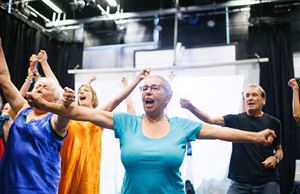Choices available for 16-year-olds: education, apprenticeships, vocational qualifications
When you reach the age of 16, big decisions need to be made.
Young people are expected to stay in education until the age of 18 depending on which school they attend - and with lots of options available it’s a tough choice to make.
Check out our guide on what a 16-year-old can do once they finish their GCSEs. Options are divided into three areas.
Studying full-time
Schools, colleges and training providers offer a range of subjects and courses if your child wants to stay in full-time education.
A-levels
General qualifications that are valued by employers and universities and are a great route to degree-level study at universities and colleges. They are a fantastic option for people who want to study subjects further
There is a huge list of A-Level subject ranging from maths, ancient history, film studies, philosophy, travel and tourism etc
Pupils would ordinarily need to have at least five GCSEs at grade A*to C or an equivalent qualification.
Vocational Qualifications – NVQs and BTECs
You can also start work and go into job-related courses
They combine practical learning with studying subjects and technical skills and these are specialist courses that relate to particular jobs, sectors and subject areas
They are a good starting place if you know exactly what you want to do in the future and are widely accepted at most universities in the UK.
Apprenticeships
If you are interested in starting work and learning new skills then this could be the right option for them. There are different types of apprenticeships across plenty of industry sectors.
On an apprenticeship you will study for qualifications while working and they learn the skills they need for the job they are doing
You will earn a wage and will be entitled to holiday pay. The national minimum wage for an apprentice is £3.30 per hour
Hundreds of options are available from engineering to journalism, veterinary nursing, chefing courses, music production, graphic design and lots more.
Work or volunteer while studying part time
If studying full-time isn’t the right option for you, you can combine full or part-time work with training or studying for a qualification alongside the job
The options include work, volunteering or setting up your own business
Working doesn’t have to be a paid job, you could volunteer for a project or charity work, or get a work experience type placement in a career or job you are interested in.





